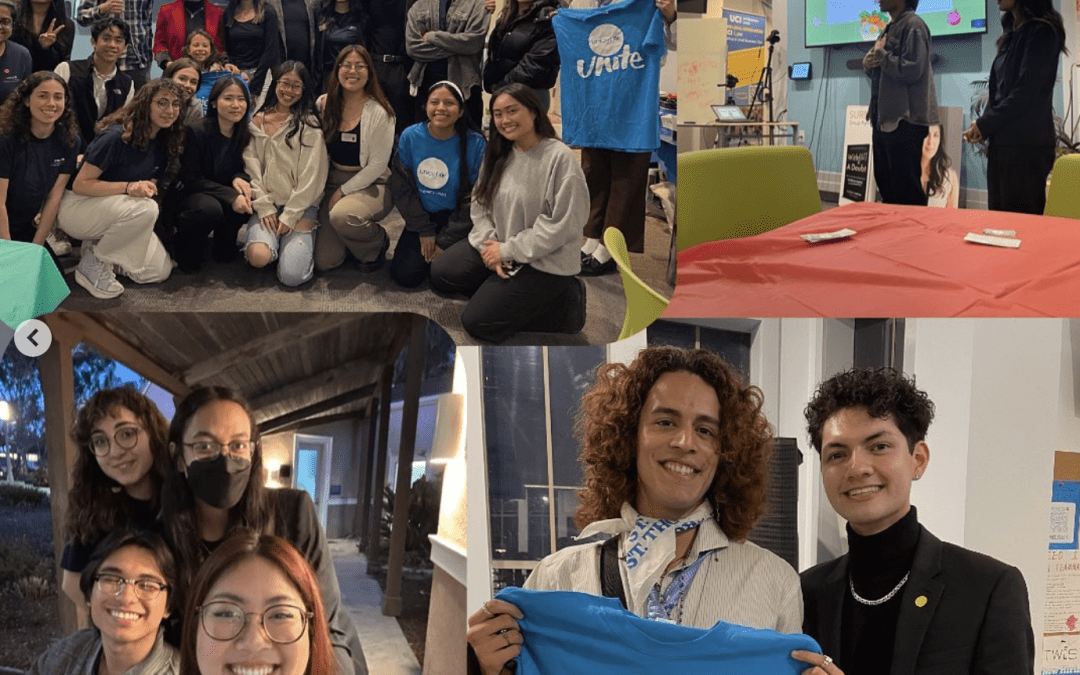By Lizzie Duong
As the Sustainability Strategist at UCI ANTrepreneur Center, I’ve been working to ensure that our student startups and business practices align with the United Nations Sustainable Development Goals (SDGs). The SDGs were adopted by all United Nations Member States in 2015 in a universal call to action to end poverty and hunger, protect the planet, and ensure that all peoples enjoy peace and prosperity by 2030.
With that said, businesses have an important role to play in achieving the SDGs as well because with great power comes great responsibility. Even startups can contribute to sustainable development by creating business models with environmentally-conscious values by integrating sustainability into their operations. To bridge the gaps among people, planet, and prosperity, businesses must take a long-term view by considering the multilayered impacts of their activities.
Recently, I was invited to speak at UNICEF’s annual Hunger Banquet in Irvine. The Hunger Banquet is an experiential event that simulates the unequal distribution of food resources around the world. Participants are randomly assigned to one of three groups – high-income, middle-income, or low-income – and receive a meal that reflects their assigned status. Through this experience, participants gain a deeper understanding of the challenges of hunger and poverty, and the complex web of factors that contribute to food insecurity. They also learn about the various ways in which organizations like UNICEF are working to address these issues and create a more sustainable future.
At the Hunger Banquet, I had the opportunity to share my insights on the role of business in achieving sustainable development. I spoke about the importance of considering the social and environmental impacts of business activities, and how this can lead to greater long-term success for businesses as well as benefits for society and the planet. I also discussed some specific examples of how businesses can align with the SDGs, such as promoting social equity and inclusion, and investing in sustainable supply chains. These practices not only benefit the planet and society, but can also lead to increased profitability and brand reputation for businesses.
Additionally, I had the opportunity to hear from aspiring entrepreneurs who are currently in the works of creating their own startups to tackle unreliable and unhealthy food challenges, such as Leslie Ciriaco – who’s creating her own app and podcast. Overall, the Hunger Banquet was a powerful reminder of the importance of sustainable development and the role that organizations like UNICEF and businesses can play in creating a more just and equitable world. At the ANTrepreneur Center, we are committed to working with businesses to help them align with the SDGs and create a better future for all.

